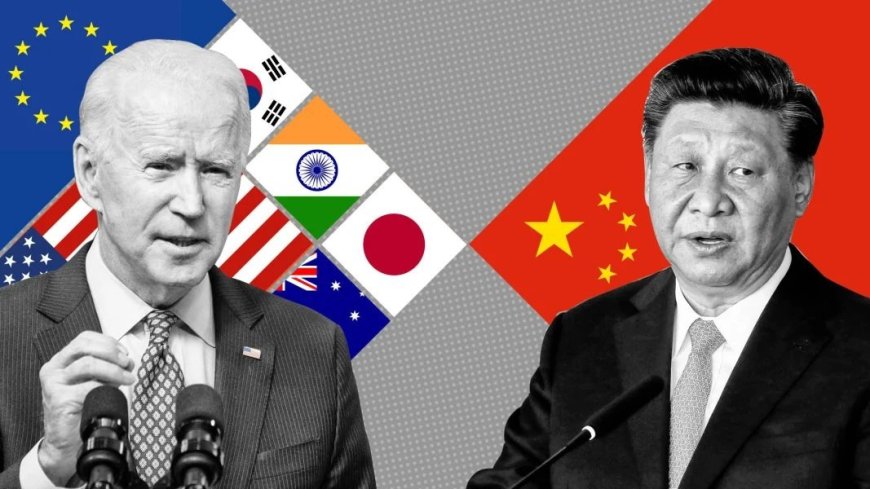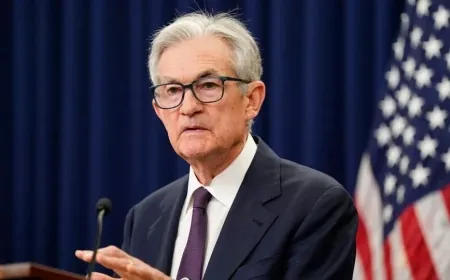White House's New Strategy: Regulating US Investments in China's Tech Sector
White House's plan to restrict American investments in China's tech sectors. Read about the executive order's impact on quantum computing, AI, and more.

The White House has revealed its intention to impose restrictions on certain American investments within China's burgeoning tech landscape. The announcement, made on Wednesday, outlines measures to curtail investments in sensitive technology sectors and mandates prior notification for other investments. However, the implementation of these actions might not be immediate, as officials acknowledge a potential timeline for their enforcement.
President Joe Biden took decisive action by signing an executive order, directing the US Treasury Department to oversee specific American investments in narrowly defined domains such as semiconductors, quantum computing, and artificial intelligence, as confirmed by senior administration officials.
Here are key takeaways from this development:
Focus on "Countries of Concern"
The executive order distinctly highlights the intention to regulate investments in designated "countries of concern." In an initial phase, this includes China, Hong Kong, and Macau, as detailed in a separate annex. While these locations are the primary targets, the list may be expanded in the future, as hinted by a senior administration official in contact with Reuters.
Administration representatives have emphasized that the proposed regulations will encompass the requirement of investment notifications for many transactions, with a limited number of prohibitions. The primary objective is to mitigate the most significant national security risks by scrutinizing investments in Chinese firms and entities specializing in specific technologies that could provide China with an edge in military and intelligence endeavors.
Importantly, the stipulated regulations will be forward-looking and will exclusively pertain to forthcoming investments. This clarification was made by an administration official to provide a sense of certainty regarding the scope of the order.
Navigating the Rulemaking Process
The executive order grants the US Treasury Department the authority to oversee targeted American investments in China's tech sector. This oversight will be conducted through a comprehensive rulemaking process. The Treasury Department will commence this process by issuing an advanced notice of proposed rulemaking, allowing ample time for corporations and investors to contribute their insights and perspectives.
Following this, the administration will meticulously evaluate public comments received from stakeholders. Subsequently, the formalization of the proposed regulation will occur, with a focus on fostering an environment for public discourse.
Experts in the field anticipate that this rulemaking procedure could extend over several months, possibly pushing the implementation of the new regulations deep into 2024—coinciding with a presidential election year, if not further.
Empowering the Treasury Department
Once the regulations are in place, the US Treasury Department will wield the authority to investigate potential violations and pursue appropriate penalties. Officials underscored that the Treasury Secretary will retain the ability to unwind forthcoming investments if deemed necessary.
Engaging with International Allies
In a demonstration of diplomacy and coordinated strategy, US officials disclosed that the decision had been deliberated in consultation with international allies and partners. Treasury Secretary Janet Yellen and other US representatives reportedly communicated with Beijing about Washington's intention to focus on specific measures that would impact Chinese tech investments.
Despite the lack of immediate coordinated action by allies, signals from prominent economies such as the United Kingdom and the European Union suggest alignment with similar objectives. The Group of Seven advanced economies previously concurred in June that regulations on outbound investments should constitute an integral element of their overall policy toolkit.
The unveiling of this strategic move underscores the evolving landscape of international tech investments, prompting heightened vigilance and collaboration among nations in an increasingly interconnected digital era.
Also Read: China's Exports Witness Sharp 14.5% Drop in July Amidst Global Demand Slowdown

































































